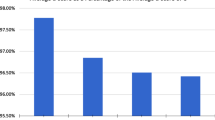Abstract
This paper defines and defends certain procedural and instrumental initiatives taken to constitute a transempirical protocol. This protocol is intended to provide one avenue for extending the bounds of rationality to decision exercises where there are only limited opportunities for effecting objective or empirical discipline. That is, the practical purpose of the protocol's facilities is to help prevent decision exercises that must be conducted in the face of a signal sparsity of objective/empirical predicates from degenerating into an uncontrolled retreat from reason.
The paper is divided into two essentially self-contained parts. Part I will try to establish the rationale for the transempirical protocol in light of the reach and limits of other decision-theoretic platforms, and briefly introduce the set of provisions it entails. Part II will then go through a technical elaboration of these provisions, suggesting how they might be brought towards operational significance.
Similar content being viewed by others
References
Allais, M. and Hagen, O.: 1979, Expected Utility Hypotheses and the Allais Paradox, D. Reidel Publishing Co.
Allais, M.: 1979, ‘The Foundations of a Positive Theory of Choice Involving Risk and a Criticism of the Postulates and Axioms of the American School’, in Allais and Hagen (op. cit.).
Beckman, M.: 1968, Dynamic Programming of Economic Decisions, Springer-Verlag.
Chipman, J.: 1960, ‘The Foundations of Utility’, Econometrica, 28.
Clark, J. (ed.): 1976, Experimenting with Organizational Life: The Action Research Approach, Plenum Press.
Edwards, W., Lindman, H., and Savage, L.: 1963, ‘Bayesian Statistical Interference for Psychological Research’, Psychological Review, 70.
Fisher, R. A.: 1956, Statistical Methods and Scientific Inference, Edinburgh, Oliver and Boyd.
Fu, K. S.: 1969, ‘Learning System Theory’, in Zadeh and Polak (eds.) System Theory, McGraw-Hill.
Glymour, C.: 1980, Theory and Evidence, Princeton U. Press.
Harsanyi, J. C.: 1985, ‘Acceptance of Empirical Statements: A Bayesian Theory Without Cognitive Utilities’, Theory and Decision, 18.
Kamian and Schwartz: 1981, The Calculus of Variations and Optimal Control in Economics and Management, North Holland.
Marschak, J.: 1950, ‘Rational Behavior, Uncertain Prospects and Measurable Utility’, Econometrica, 18 (2).
Menges, G.: 1979, ‘Comparison of Decision Models and Some Suggestions’, in Allais and Hagen (op. cit.).
Ramsey, F. P.: 1965, The Foundations of Mathematics and Other Logical Essays, Littlefield and Adams, reissue of 1931 work.
Savage, L.: 1954, The Foundations of Statistics, Wiley.
Schneeweiss, H.: 1974, ‘Probability and Utility - Dual Concepts in Decision Theory’, in Menges, G. (ed.) Information, Inference and Decision, D. Reidel.
Skyrms, B.: 1987, ‘Updating, Supposing and Maxent’, Theory and Decision, 22.
Tversky, A. and Kahneman, D.: 1974, ‘Judgement Under Uncertainty: Heuristics and Biases’, Science, 185.
Tversky, A. and Kahneman, D.: 1981, ‘The Framing of Decisions and the Psychology of Choice’, Science, 211.
Tversky A. and Kahneman, D.: 1983, ‘Extensional vs. Intuitive Reasoning: The Conjunction Fallacy in Probability Judgement’, Psychological Review, 90.
von Neumann, J. and Morgenstern, O.: 1947 and 1953, Theory of Games and Economic Behavior, Princeton University Press
von Winterfeldt, D. and Edwards, W.: 1986, Decision Analysis and Behavioral Research, Cambridge University Press.
Weimer, W. B.: 1979, Notes on the Methodology of Scientific Research, Hillsdale, N. J., Lawrence Erlbaum Assoc.
Author information
Authors and Affiliations
Rights and permissions
About this article
Cite this article
Sutherland, J.W. Disciplining qualitative decision exercises: Aspects of a transempirical protocol. Theor Decis 28, 73–101 (1990). https://doi.org/10.1007/BF00139239
Issue Date:
DOI: https://doi.org/10.1007/BF00139239




